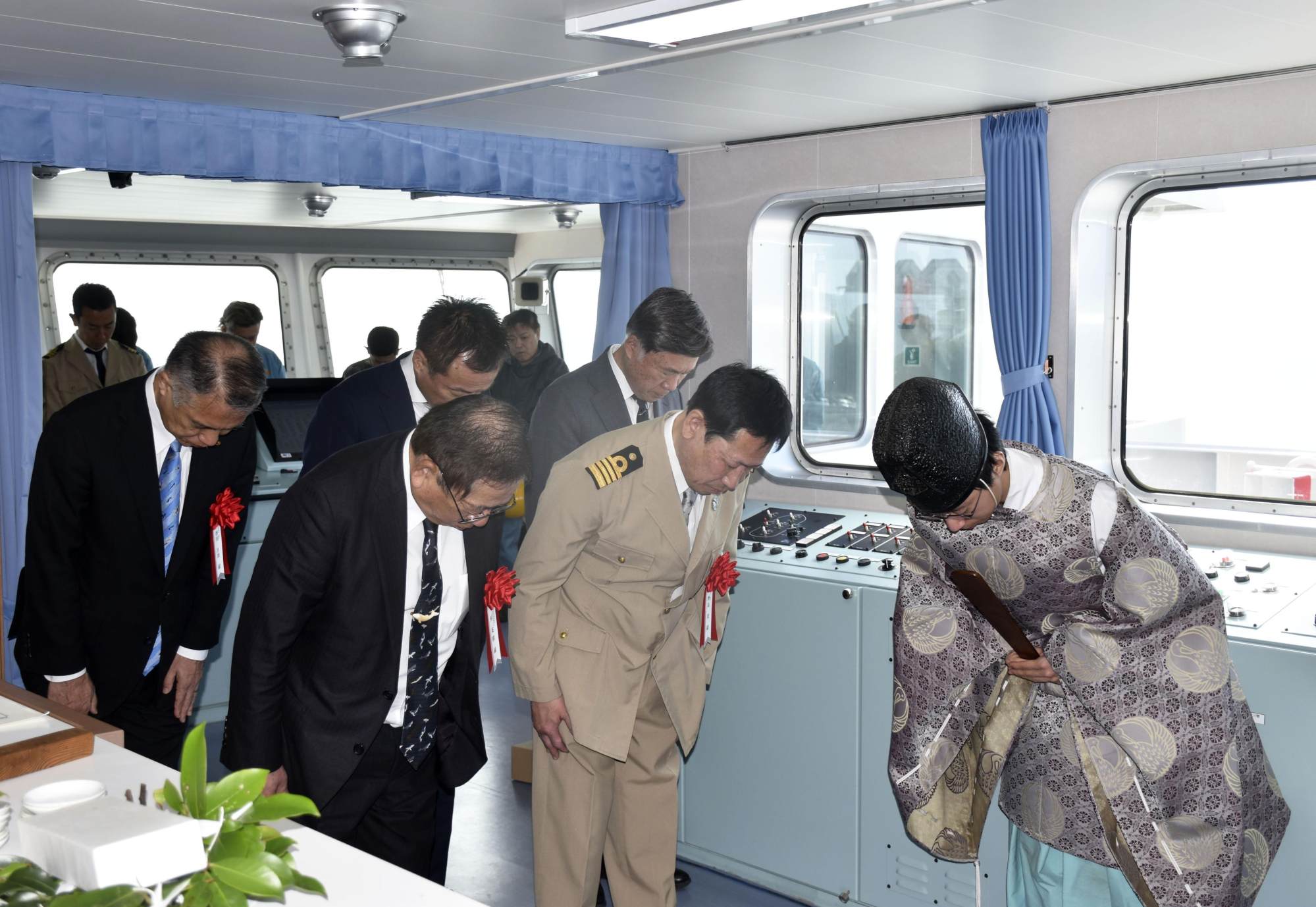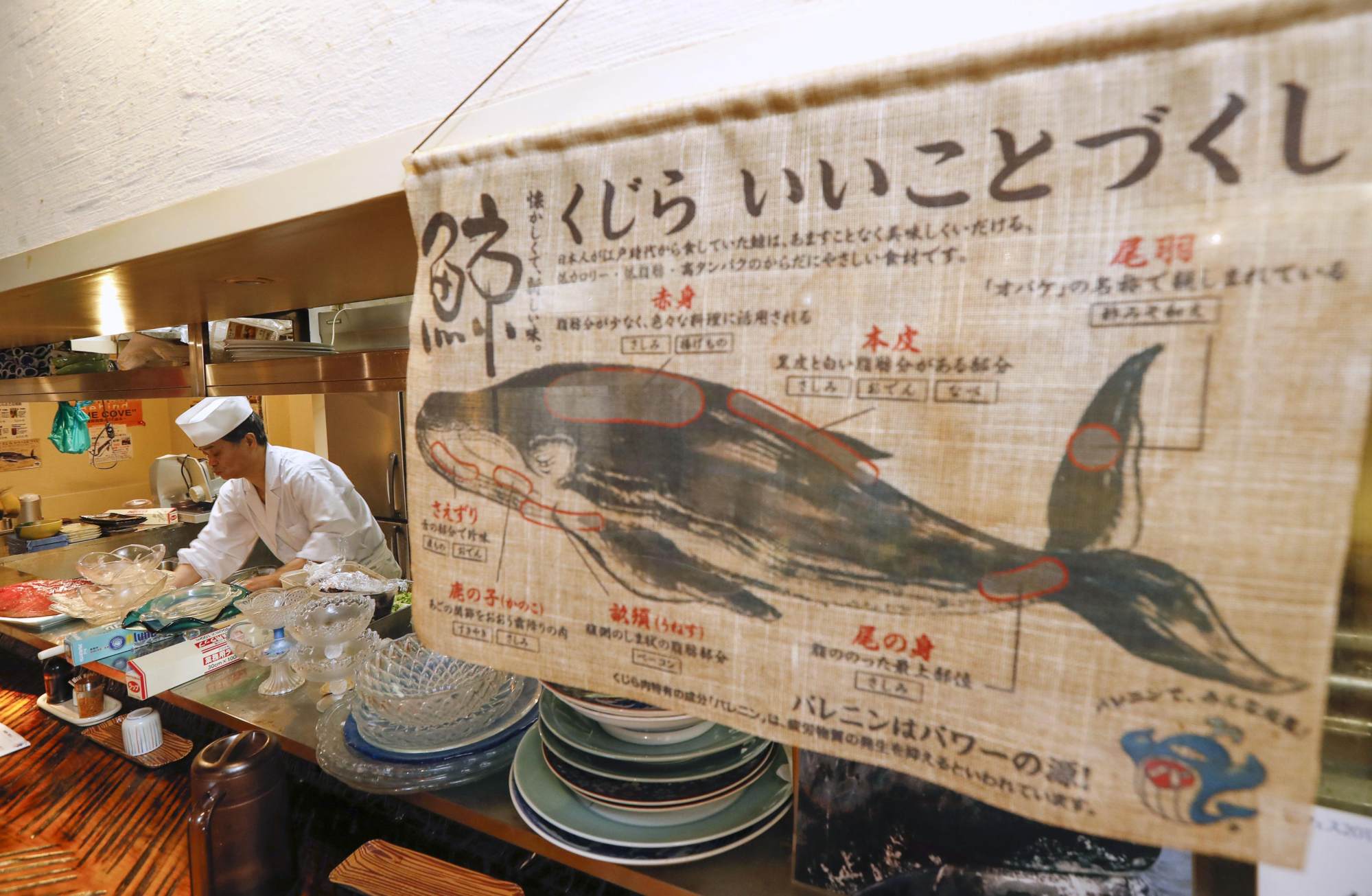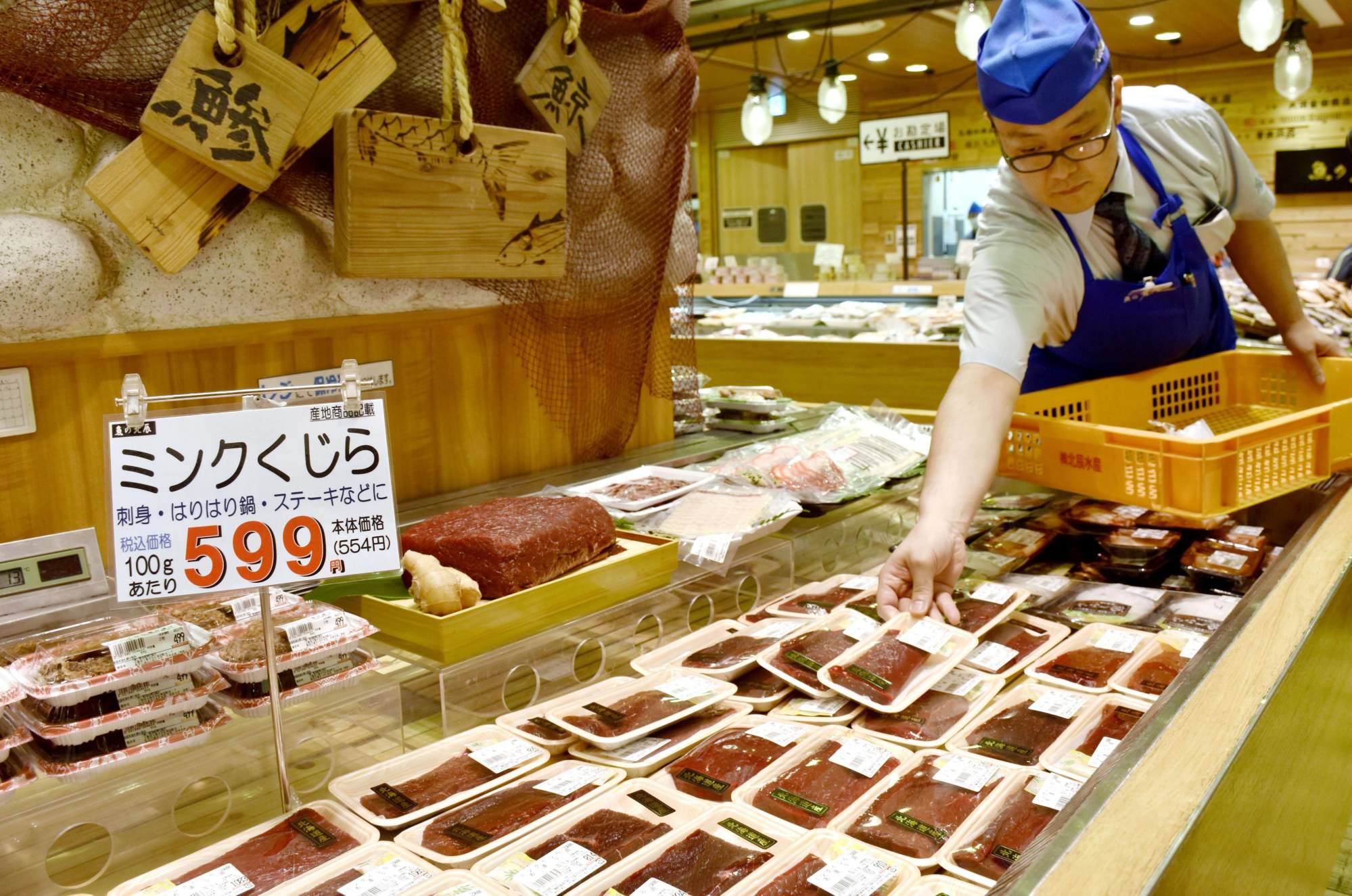Sea trials have begun of the first dedicated whaling mother ship to be built in Japan in 73 years, drawing polarised reactions from environmental campaigners and the public.
The Kangei Maru was launched on March 30 in the port of Shimonoseki, in southern Japan, to replace the Nisshin Maru, a converted cargo vessel that processed 17,072 whales between first going into service in 1991 and being retired in November.
The new ship has now started at-sea testing and is scheduled to set out on its maiden operational voyage in May.

Owned by Tokyo-based Kyodo Senpaku Co and costing 7.6 billion yen (US$50.1 million), the 9,300-ton ship is 112.6 metres from bow to stern and is able to haul 70-ton fin whales up its slipway. Operating with smaller catcher ships, the vessel is able to store up to 600 tons of refrigerated whale meat, enabling it to remain at sea for extended periods.
Attending the launch ceremony, Captain Shigeru Nojima told the local Yamaguchi Shimbun: “It is a ship with excellent manoeuvrability, and I am looking forward to operating it. I will be happy if the consumption of whale meat spreads from Shimonoseki to the rest of Japan.”
Kiyotaka Nakagawa, vice-chairman of Kyodo Senpaku, said, “We would like to use cutting-edge technology to propose new and delicious dishes so that as many people as possible can enjoy the whale meat that our crew members catch.”
Kiyoshi Ejima, who represents the constituency in the Upper House of the Diet, also attended the event, saying, “This is a wonderful ship built in Shimonoseki and our greatest mission now is to spread the culture of eating whale meat among the younger generations.”

Despite that enthusiasm, convincing enough Japanese people to buy whale meat appears to be the biggest challenge that the industry here faces. Part of the problem is the relatively high cost, with 1kg retailing for around 2,200 yen.
After years of insisting before the International Whaling Commission that it should be permitted to carry out commercial whaling and denying that its “scientific whaling” was actually a thinly disguised commercial effort, Japan withdrew from the organisation in December 2018 and vowed to resume whaling within its territorial waters and outside other nations’ economic zones.
The industry suffered a body blow two years later when the government dramatically scaled back the subsidies that were provided to the sector and had effectively kept it afloat. In 2020, those subsidies came to 5.1 yen billion, even though whale meat sales totalled a mere 2.5 billion yen. The subsidies were replaced with government loans that have to be repaid.
Nevertheless, Kyodo Senpaku went ahead with the construction of the Kangei Maru, although the project was scaled back from the originally envisaged 15 billion yen. The company has always insisted it will gradually pay back the cost of the ship through sales, although with annual running costs estimated at 700 million yen and loans to repay to the government, it is not clear how long it will take to achieve profitability.
‘Internal Google maps are messed up’: Japan’s whale deaths stump experts
‘Internal Google maps are messed up’: Japan’s whale deaths stump experts
Campaigners against Japan’s whaling industry believe the sector is already on its last legs and that whaling firms could be bankrupt before the end of the decade.
Ren Yabuki, founder of the animal protection NGO Life Investigation Agency, is angry that the whaling industry has benefited from taxpayers’ funds for so many years and for a product that is largely unpopular with consumers.
“Whaling should stop and it is wrong that tax money has been spent to support the industry,” he told This Week in Asia. “No company should get tax funds over any other to prop up its operations.”
“Japan is the only country in the world that does this,” he added.
The International Fund for Animal Welfare has estimated in a recent report that whale meat consumption in Japan has plummeted by 99 per cent in the last 60 years and called on whaling firms and coastal fishermen that continue to slaughter dolphins to instead transform their communities by embracing whale- and dolphin-watching tourism.

Yet for some Japanese, the issue is almost a question of national identity and resistance to being told what to do by other countries. They will point out that no one protests over cattle, pigs and other livestock that are slaughtered for the dining table.
Media coverage of the Kangei Maru launch appears to have resurrected a certain desire in some quarters for whale meat, which was a staple in school lunches in the difficult years immediately after Japan’s defeat in World War II.
“I’m nostalgic to eat whale meat again as soon as possible,” a message on the Yamaguchi Shimbun website said, adding that the ship should be fitted with a powerful water cannon to deter environmentalists who attempt to interfere with the hunt.
“I’m an old-fashioned person and I think it’s delicious,” said another message linked to an interview with the CEO of Kyodo Senpaku on the President Online website. “If it becomes cheaper and available in large quantities, I am sure that people will come up with new ways to eat it.”
Yet another claimed: “There are a lot of fake environmental groups trying to make the point that eating whales is savagery, but their claims are wrong and baseless. The population of small whales has increased, creating competition with rare species, such as blue whales, and the population of those large cetaceans has declined sharply.
“I will support the industry by buying whale meat.”

